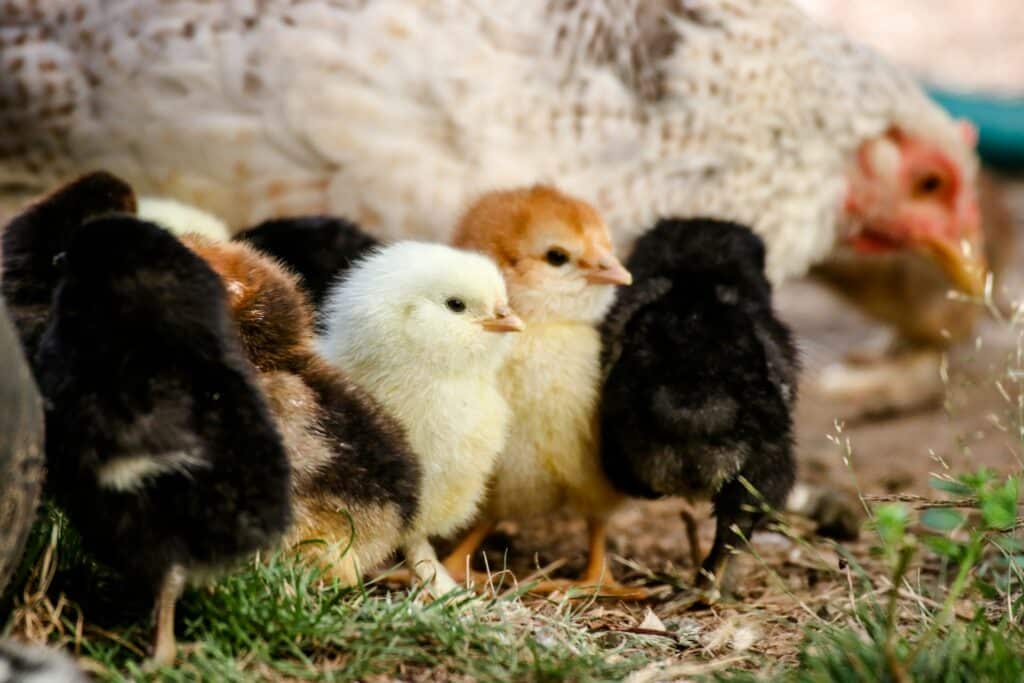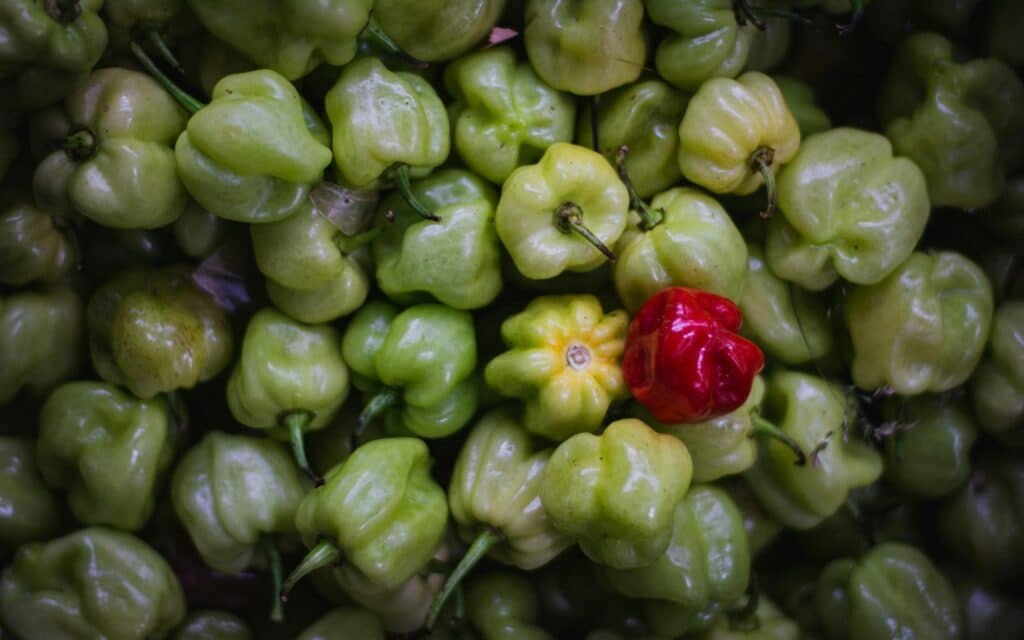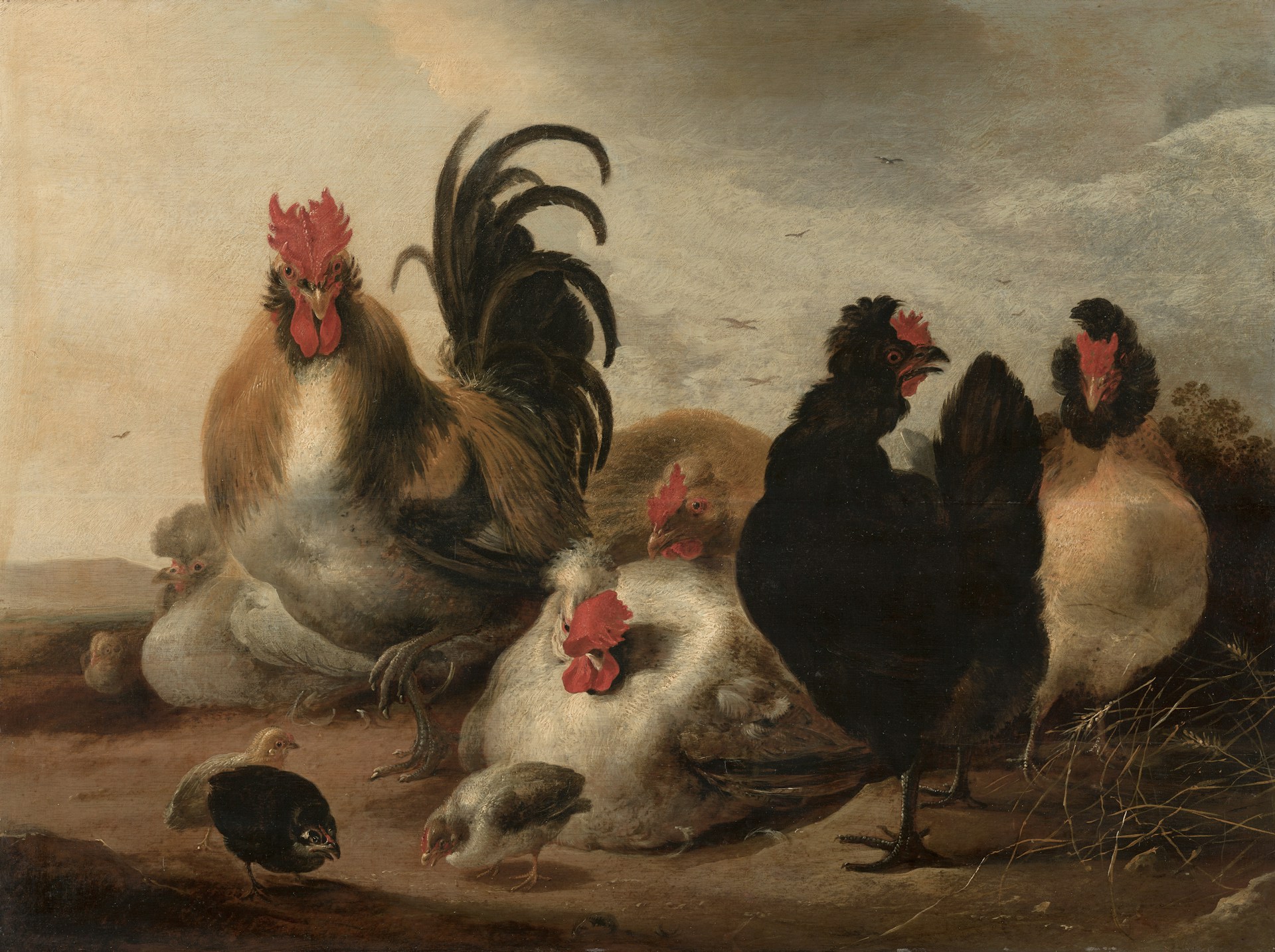One of our hens died.
We noticed she was having a hard time breathing. Her stools were watery. After a couple of days we decided to separate her from the flock and bring her inside for closer observation and care.
She was up and down for about a week, but she eventually perked up and we let her back outside to enjoy some sunshine. After a few hours, I picked her up to take her back in. She flapped her wings, let out a great squawk, and promptly died in my arms.
It was all of the hope and promise and tragedy of homesteading balled up into one devastating moment.
We don’t know what killed her, but we are certainly aware of bird flu as a possibility. If any other birds got sick, we would be faced with the prospect of culling our entire flock. We’ve been monitoring the birds carefully and, so far they all seem fine, but it did get us thinking about propagation. Between illness and predators, we recognized not only the vulnerability of our chickens, but also our own vulnerability which came into shocking relief as we considered our increasingly interdependent relationship.
We purchased an incubator.
Dubious Parentage

We’ve got a mixed flock of two roosters and eight hens. By most accounts, that’s a pretty rough ratio. Normally you want at least a dozen hens for each rooster. They are territorial and their reproductive behaviors can be relentless. Without enough hens for them to work with, any one hen can get harried to the point of losing feathers or worse.
Despite this, our flock seems to have worked it out. They are all different breeds and everybody gets along pretty good. The hens appear healthy, but with the possibility of two different fathers, eight different mothers, and all the different breeds, the eggs that we collected for the incubator are genetic mysteries.
And now that they’ve hatched, we wonder: which chicks are better?
The light ones or the dark ones?
O people! We have created you all, male and female, and have made you nations and tribes so that you would come to know one another. The most honorable among you in the sight of God is the most pious of you. Indeed, God is All-knowing and All-aware.
Q 49:13
Unless we’re breeding our chickens for an art project, valuing our birds exclusively by color is silly. Color does have some implication, though, insofar as it might tell us something about the breed and associated characteristics. That there are differences between lines of birds and, to the point of this discussion, people, is implicit for the Muslim who understands the words of the Qur’an as sacred. We have been separated into nations and tribes and there are differences. This is implicit in the rationale, “so that you would come to know one another.”
But which of us is best, or, in the language of the Qur’an, “the most honorable?”
God says, “the most pious.” And it’s fascinating that piety is effectively indiscernible. It requires penetrating and comprehensive insight into one’s intellect, understanding, intentions, and circumstances. We cannot judge piety based on outward actions alone, for the hypocrites and imposters are many.
Our criteria for evaluating “good” among people is most often based on their similarity to us, and that is perfectly natural. We are herd animals after all, social creatures that have developed shortcuts for rapidly assessing safety and the potential for cooperation. We gravitate toward others with a shared identity, the implication being that our company is a reflection of how we understand ourselves.
If we most closely identify with our race or ethnicity, our companions will likely reflect that. Some of us center our profession, our politics, or our sexual preferences as our core identity with friend-groups to match. But the Muslim is invited to push beyond these instinctual criteria for group affiliation. Companionship in our tradition does not exist only for our comfort and validation. We are also here to challenge one another, to encourage the distinguishing piety that God has deemed as “most honorable.” And so for us, the building of our tribe is a matter decided:
You shall not find a people who believe in God and the Final Day befriending those who act in opposition to God and His Messenger, even if they were their fathers, or their sons, or their brothers, or their kinsfolk.
Q 58:22
While we cannot accurately assess piety, the true measure of honor among people, a reasonable proxy is religious affiliation. We are instructed here to recognize that our sister or brother in faith must be regarded as more deserving of our intimate companionship than even our non-believing blood relations.
Those outside the faith may see in this an unappealing insularity, a sort of off-putting institutional narcissism. But such an assessment disregards the elective nature of the criteria.
We have no choice in the matter of our race, ethnicity, or to which household we might be born. Social class is assigned to us by others. Our sexuality is not always a matter of choice. Our intellectual and physical abilities are limited by genetics and environmental factors well beyond our sense of control.
Identities based in choice, on the other hand, liberate and expand our options, linking us to people and opportunities that would not exist for us otherwise.
No compulsion is there in religion. Rectitude has become clear from error. Whosoever rejects false idols and believes in God has firmly taken hold of a strong handle that never breaks. God is All-Hearing and All-Knowing.
Q 2:256
For Muslims, making sure that choice is available to all is critical to avoid becoming a death cult or a street gang or a cover for extremist politics.
Otherization

And yet we too often make it oppressively difficult for others to join our ranks . We do this even as we lament targeted campaigns that seem to “otherize” Islam, depicting Muslims as strange, violent, foreign, and backward. We point to the wording of headlines or depictions of Muslims in film as evidence, and there is plenty of evidence.
But what of our own twisted gatekeeping?
Why are we building mosques that look like something out of 15th century Istanbul? When we gather, why do we insist upon wearing clothing specific to the Levant or the Indian subcontinent? Why are we so critical of the American political process while doing nothing to serve that process or the larger, humanitarian interests of our fellow citizens? Where is the proliferation of Islamic universities, medical centers, and social service agencies to care for our co-nationalists?
And why do we feel so comfortable judging and ridiculing people of European ancestry?
We wave away the possibility of diversity or even the existence of any culture among this demographic that we simply write off as “white people.”
Privileged and powerful, white people are fair targets for our derision because, in the language of leftist politics, we are “punching up” from our place of marginalization as “people of color.” None of this has any validity in the Islamic worldview, but we co-opt this language because we’ve traded Islamic values for those of secular liberalism. We adopt the posture of oppressed victim rather than assume the mantle of moral leadership as is our mandate.
If Americans of European ancestry hold power and privilege, this is an historical contingency and not a consequence of their skin color. After getting carjacked by someone of obviously Latin heritage, we don’t assume that all Mexicans are thieves. That would be very obviously prejudicial, as would the belief that all Muslims are terrorists after learning about the violent behavior of some extremist nutjob. But despite having experienced the pain and confusion of these awful projections, we offer no such consideration for “white people.”
And yet we have the nerve to tout our faith as one for all times, all places, and all people.
When, despite our bad behavior, a caucasian American embraces Islam, it’s not long before we’ll have him dressed up in a thobe or a shalwar kameez to help him better integrate into the ethnic majority of his local Muslim population. We don’t think about how this might serve to confuse and alienate his family members, men and women descended from proud European nations with their own customs, cuisine, and costume. We don’t think about how our insistence on third-world fashion might reinforce tropes of Islam as the foreign “other.” Worse, after going full Arabian Nights with our new Muslim, we then paint as ignorant those caucasian Americans who understand Islam as an ethnicity rather than a religion.
We are blind to our possessive and culturally reductive manifestations of Islam as the religion of “brown people.” We completely miss not only the myopic idiocy of this position which we advance every time we telegraph our biases against Americans of European descent, but also the complete contravention of God’s mandate to “know one another.”
This is our directive, not theirs.
If piety is the measure of our honor, let us not abandon our post.
Leave a comment below for posterity or join us in the D&T Chautaqua Discord to discuss this post with other adventurous spirits from around the world.
